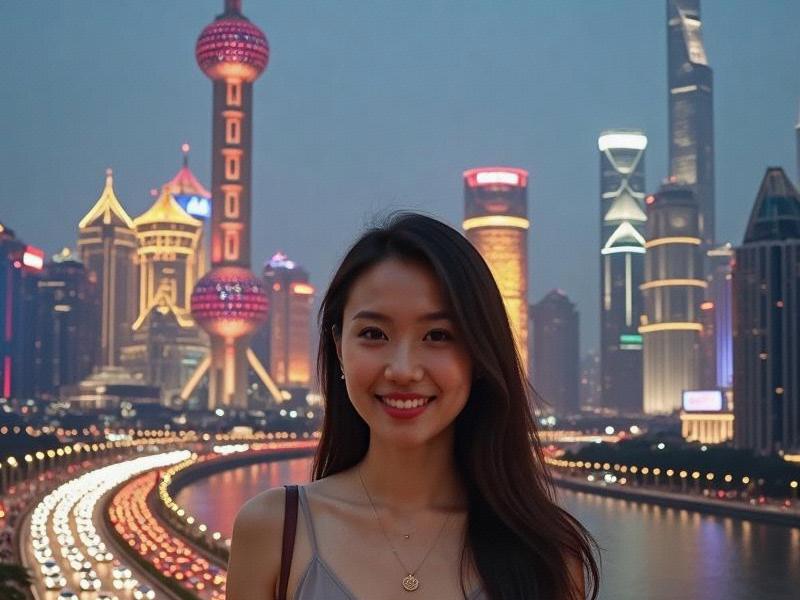
The morning rush at Shanghai's People's Square Metro Station presents a fascinating tableau of modern Chinese womanhood. Executive Lily Chen strides purposefully in her tailored qipao-inspired dress and sneakers, checking stock prices on her Huawei foldable. Nearby, university student Zhang Meiling adjusts her vintage Shanghainese-style hairpin while debating philosophy with classmates in fluent English. These scenes capture the essence of today's Shanghai woman - equally comfortable in global boardrooms and local wet markets, blending centuries of tradition with 21st-century ambition.
Shanghai has long been China's trendsetter in female empowerment. Current statistics reveal intriguing patterns:
• 43% of Shanghai tech startups have female founders (national average: 25%)
• 68% of Shanghai women contribute equally or more to household income
• Average age of first marriage: 29.9 (national average: 27.1)
上海神女论坛 • 61% prioritize personal development over marriage (Fudan University study)
The fashion industry reflects this cultural shift. At the newly opened "Modern Heritage" boutique on Anfu Road, the best-selling item is a dress combining Ming Dynasty embroidery with sustainable tech fabric. "Our customers want pieces that honor tradition while projecting contemporary power," explains designer Victoria Wang, whose label recently debuted at Paris Fashion Week. Beauty standards similarly merge old and new - the city's top spas now offer treatments blending jade rollers with cryotherapy.
Education fuels this quiet revolution. Shanghai's girls consistently rank 1 globally in math and science, while the city boasts China's highest concentration of women with advanced degrees. "We were raised to believe we could achieve anything," says AI entrepreneur Dr. Zhou Yuxi, "but we're now rewriting the rules about what 'having it all' really means." This tension manifests in corporate Shanghai, where women hold 38% of executive positions yet still navigate subtle biases.
上海龙凤419社区 The dating scene reveals fascinating contradictions. Matchmaking agencies report surging demand for "equality-minded" partners, while new apps like "PowerCouple" connect ambitious professionals. "My parents worry my PhD scares men away," laughs finance executive Emma Li. "I tell them the right man won't be intimidated by a woman who owns her success."
Cultural representations are evolving to reflect this new reality. Hit dramas like "Ode to Joy" portray complex Shanghai heroines, while social media stars like "The Shanghai Lady" (4.7M followers) showcase everything from negotiating venture deals to mastering grandmother's soup recipes.
上海娱乐 As neon lights illuminate the Bund, groups of women gather at rooftop bars like Flair or Captain's Bar. Their conversations swing between blockchain trends and the best xiaolongbao in the city, often seamlessly code-switching between Mandarin, English, and Shanghainese dialect. The clink of champagne glasses mixes with laughter - the soundtrack of women who've mastered balancing multiple worlds.
Perhaps the true essence of modern Shanghai womanhood appears in quieter moments: the tech CEO who pauses her investor meeting for her child's video call, the fashion editor consulting her grandmother about vintage qipao patterns, or the scientist keeping her team fueled with perfect shengjianbao during all-night research sessions. In a city racing toward the future, these women carry tradition forward - not as baggage, but as carefully curated wisdom in designer handbags.
The Shanghai woman, it turns out, was never just about beauty. It's about the confidence to wear Prada to a morning tai chi session, the wisdom to know when tradition serves and when it stifles, and the resilience to smile when called "too successful" for conventional romance. As China continues its remarkable transformation, the world watches Shanghai's women - the original alchemists who keep redefining what it means to be modern, Chinese, and female.
